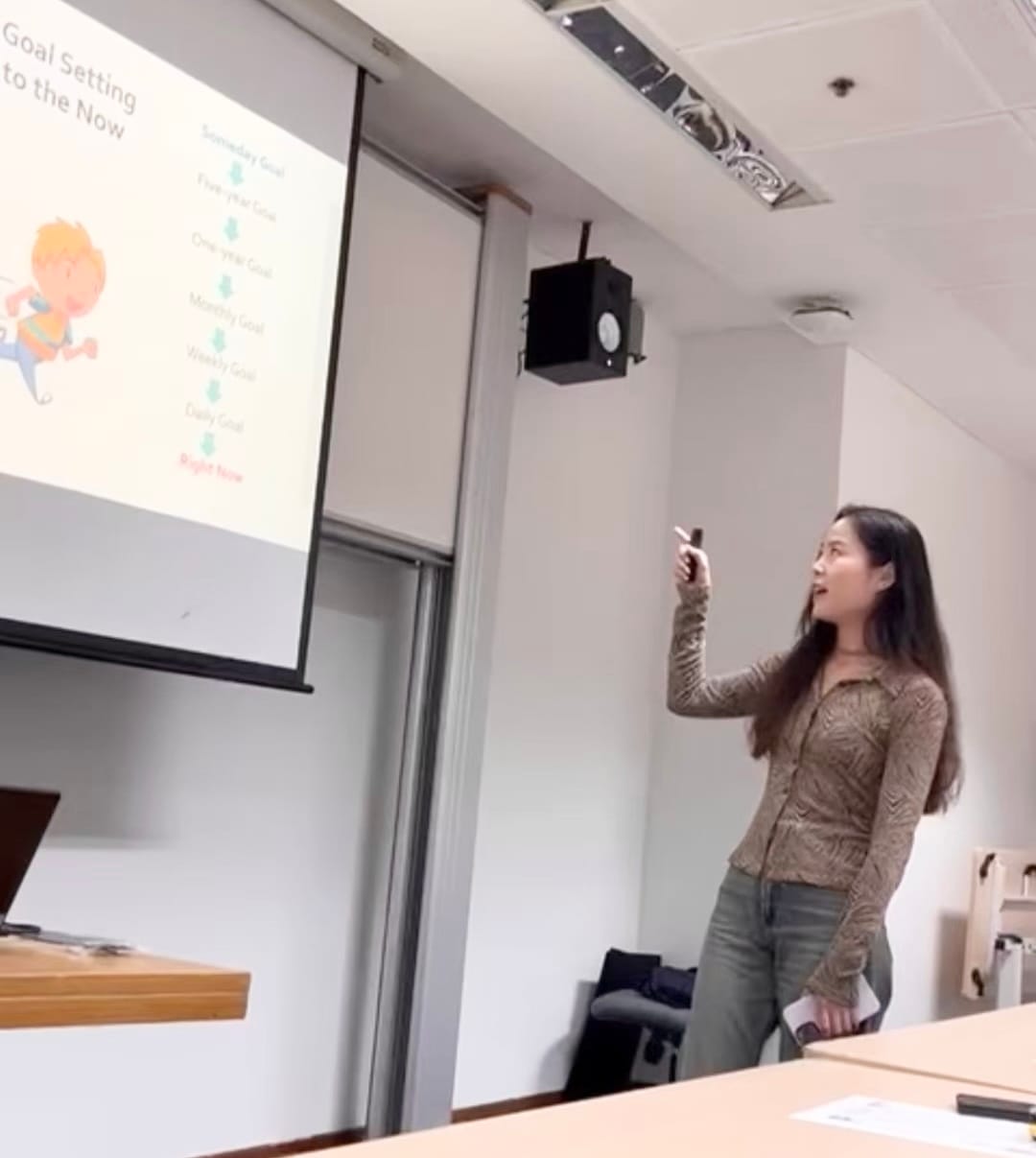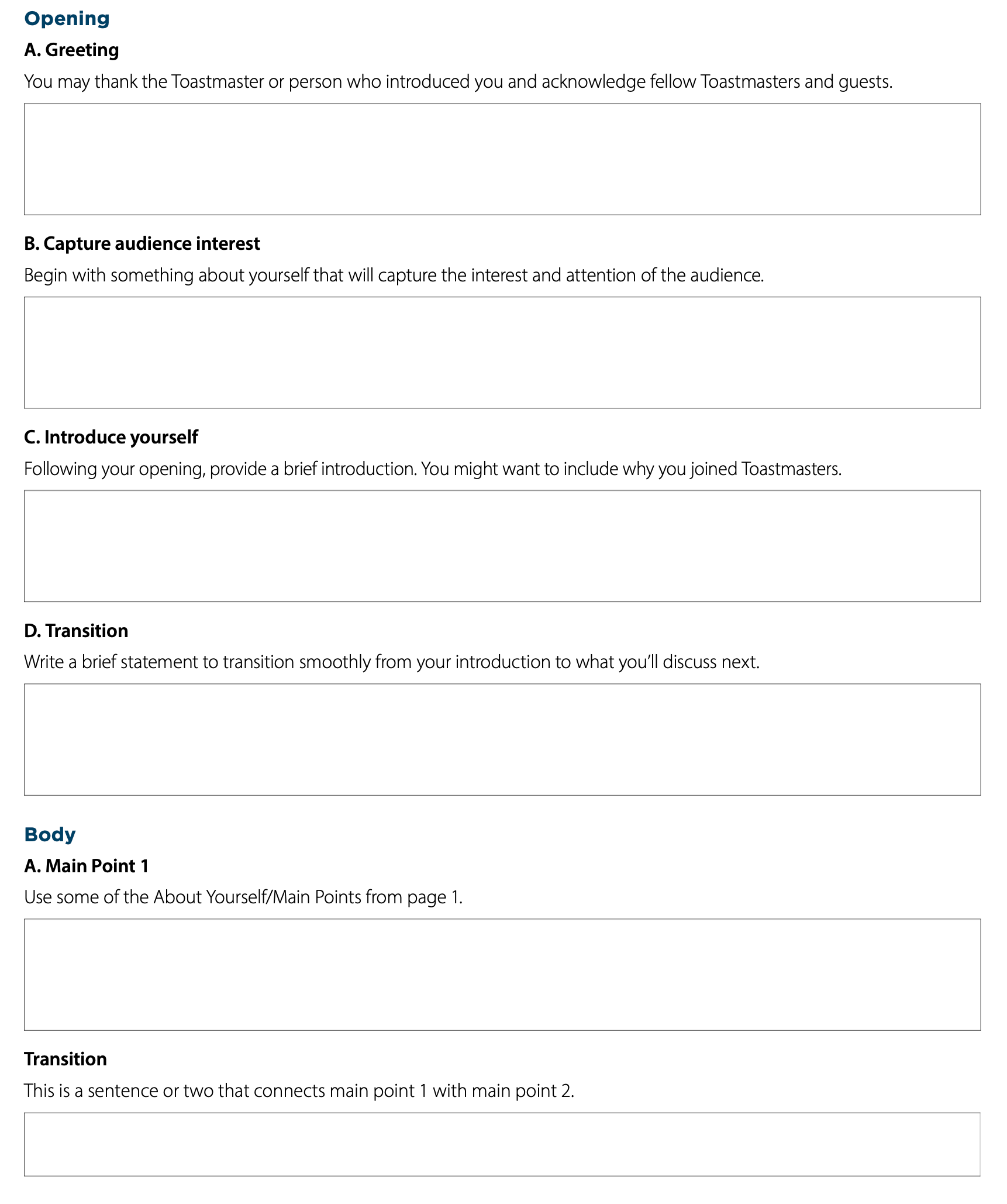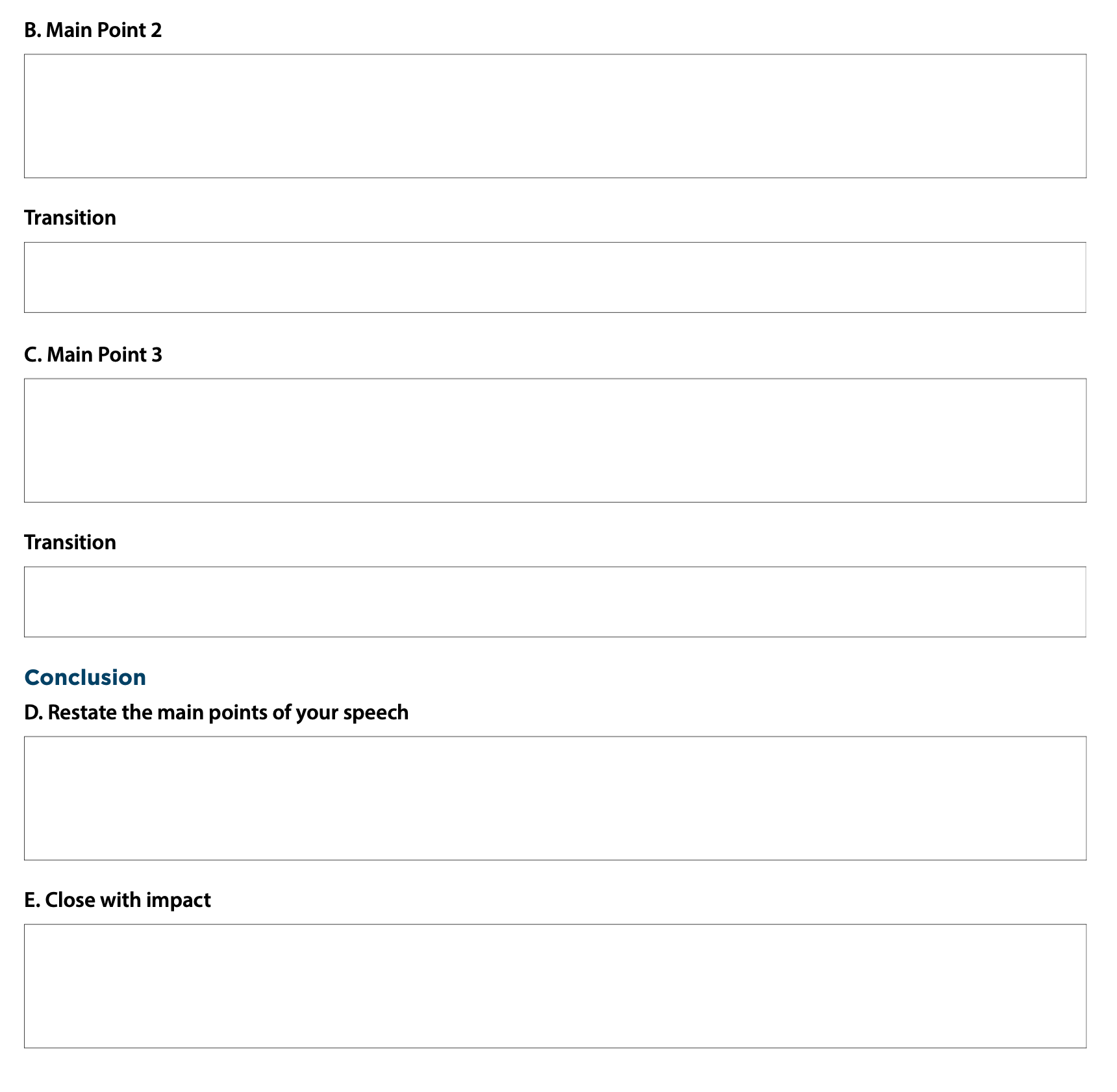My first Toastmasters ice breaker speech
One thing I found especially valuable was that the club invited two types of evaluators: a speech evaluator who gave personalized feedback on my performance, and a language evaluator who assessed everyone’s language use.

I delivered my Ice Breaker speech at the NUS Alumni Toastmasters Club on 11 July 2025. The purpose of this project was to introduce myself to the club and to learn the basic structure of a public speech.
Due to the time limit, I needed to stay mindful of pacing. However, during the speech, I didn’t check the timer, so I slightly exceeded the time limit and wasn’t able to cast a vote for the Best Speaker. This was one of the key lessons I learned from the experience.
I’ve included the speech structure I used here—it may be helpful when you prepare your own Ice Breaker speech.
One thing I found especially valuable was that the club invited two types of evaluators: a speech evaluator who gave personalized feedback on my performance, and a language evaluator who assessed everyone’s language use. This allowed me to receive immediate, constructive feedback, which made the learning process really effective.
I've also pasted the language evaluator’s comments below. These remarks are excellent for learning and reflection.

I WAS Language Evaluator at NUS Alumni Toastmasters Club on 11 July 2025. The programme did not call for Word of the Day, so my remarks covered the performances. Some general remarks:
1. Always speak to the furthest person in the audience. Some speakers directed their words to only the first row, some presented soliloquys.
2. Always script, memorise, rehearse. Do not depend on slides or phones. Struggles to remember the next words will prevent speaking with meaning and feeling.
3. Do not engage in hand-waving. It's a meaningless distraction.Then followed some specific language coments. I quote, then comment.
4. "The reason is because ...". The words "reason, because, why" are loner words. They never occur together in a sentence. Say: "X happened because Y", "The reason for X is Y", and "Why X? Because Y." The worst (yet common) formulation is "The reason why X is because Y."
5. "As the outgoing president". The word "outgoing" is ambiguous between "soon to retire" and "friendly guy".
6. "one act of oversight". The word "oversight" is ambiguous between "supervision, management" and "neglect, omission".
7. "to leave and to grow". The intended word was "live". Watch that careless pronunciation does not result in a different word.
8. "I may want to suggest". Do you? Will you? Either suggest or not.
9. "your hand gestures". The word "hand" is redundant. All gestures are done with the hands.
10. "A vision without a plan is a daydream." Contrast between "vision" and "daydream". "Plan" is presented as a necessary (vs sufficient) condition.
11. Table topics was introduced as an exercise in impromptu speech; then each speaker was given the same topic. Only the first speaker was impromptu.
12. "oo-ngiah-boh". This is a local expression (from Chinese dialect) meaning "is that for real?" Such expressions add colour to speeches, but need to provide translations for non-local audiences.
click to see original post


